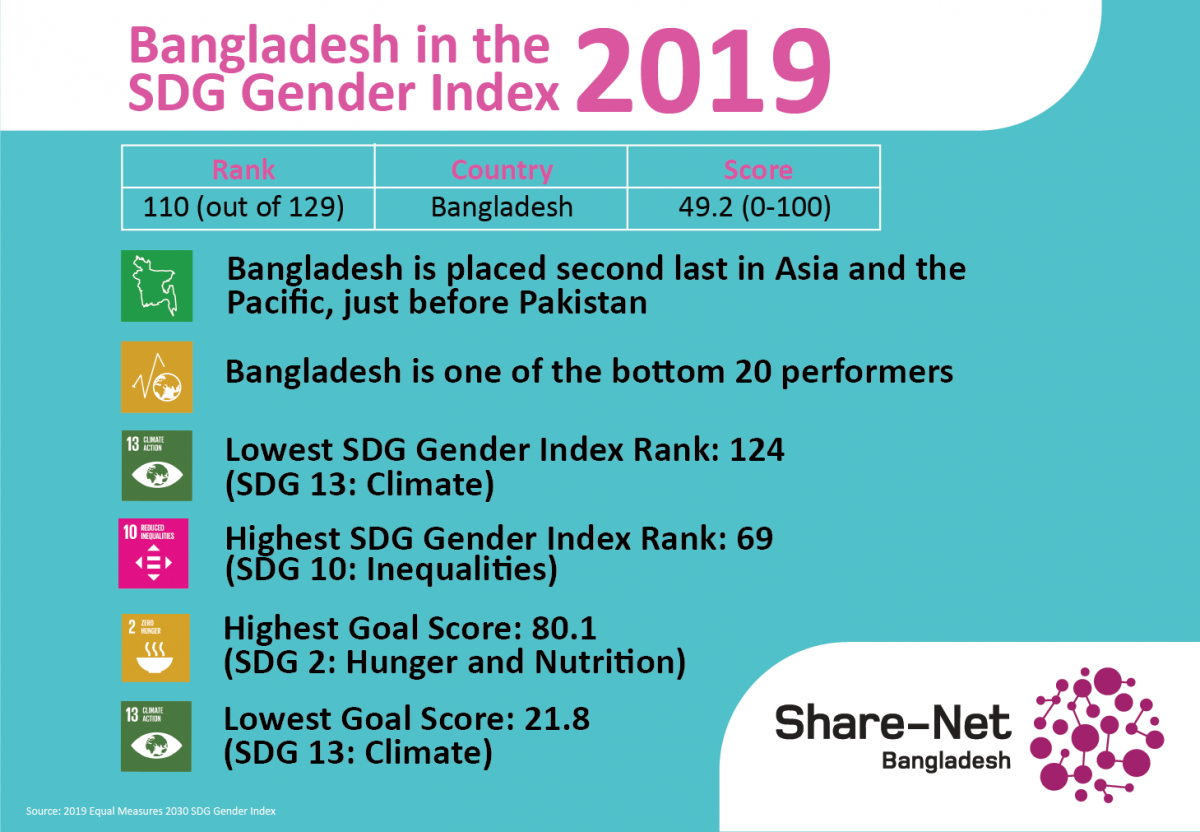
Data plays an important role in driving policies, laws and budget decisions in order to meet existing commitments made by governments in the Sustainable Development Goals (SDGs) to achieve gender equality. Realising this importance, Equal Measures 2030 made a report titled ‘Harnessing the Power of Data for Gender Equality’ to ensure that girls’ and womens’ movements, advocates and champions have the data that they need.

No country set to achieve gender equality by 2030” was the ominous headline filling my morning Twitter feed, like a feminist Dementor sent to suck hope from our souls and keep us in a holding pattern of despair and inaction.
The inaugural SDG Gender Index, developed by the Equal Measures 2030 partnership, reported no good news for progress in developing nations or so-called developed ones. All countries are apparently struggling to tackle underrepresentation of women in parliament, the gender pay gap and gender-based violence.
Girls in developing countries must be protected from sexual violence in and around schools, the head of the UN’s children fund has said, urging governments to make it a top priority.
Speaking to AFP on the sidelines of a G7 ministerial summit in Paris, UNICEF chief Henrietta Fore said keeping young girls safe was crucial to ensuring their education.
“We have a real responsibility to keep violence out of schools… by other students but also by their teachers,” she told AFP in an interview last week.
According to the Equal Measures 2030 report, Harnessing the power of data for gender equality, no country has yet achieved full gender equality. The Lancet Series on Gender Equality, Norms, and Health shows that this inequality impacts heavily on global health outcomes, laying out the role of gender norms in perpetuating inequities, and HIV is no exception.
Globally, AIDS-related deaths are the leading cause of mortality in women aged 15–49 years. In 2017, 59% of new adult HIV infections in sub-Saharan Africa occurred in women (aged 15 years and older) and worldwide young women (aged 15–24 years) are twice as likely as young men to become infected.
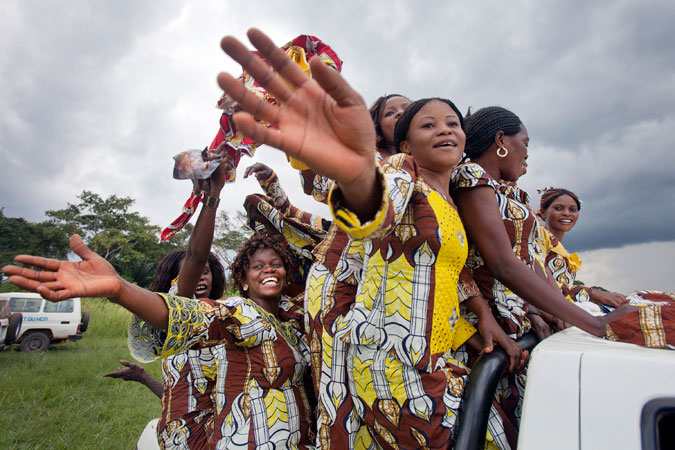
We need progress not promises on gender equality. That is why G7 leaders need to establish a mechanism that keep governments to their commitments, argue Friederike Röder, Joe Powell, Aurélie Gal-Régniez and Philippe Lévêque.
Friederike Röder is EU and France director of ONE; Joe Powell is Deputy CEO of the Open Government Partnership; Aurélie Gal-Régniez is Equipop executive director; and Philippe Lévêque is executive director of Care France
Gender equality is having its moment in 2019. After being the focus of the 2018 G7 Summit in Canada, this year’s G7 in France will also put gender equality at the center. The Gender Equality Advisory Council (GEAC), convened last year by Prime Minister Justin Trudeau, is solidifying its work under the impetus of President Emmanuel Macron. This Council brings together a spectacular group of gender advocates, from the chiefs of UN Women, Women Deliver and the Global Partnership for Education, to Nobel Peace Prize winners Nadia Murad and Denis Mukwege, and artists renowned for social engagement like Angélique Kidjo and Emma Watson.
Last month, the SDG Gender Index, developed by the Equal Measures 2030 partnership, found that 2.8billion women and girls currently live in countries that are not doing enough to improve women’s lives.
While most of those countries are in the developing world, the index shows that the gender pay gap, gender-based violence, and the under-representation of women in government were some of the issues all countries are struggling to tackle.
Gender equality isn’t a women’s issue – it’s fundamental for a safer, fairer and more sustainable world. Recent reports highlighting insufficient global progress have been described as a “wake-up call to the world”. We must do more, and faster, to make gender equality a reality and ensure the most marginalised are not left behind.
AMMAN — In terms of overall gender equality, Jordan ranks 85th out of 129 countries on the 2019 Sustainable Development Goals (SDG) Gender Index rankings, with a score of 60.4 per cent.
In Jordan, equal pay for equal work is not required by law, the 2019 SDG Gender Index said. The index was developed by Equal Measures 2030, an independent civil society and private sector-led partnership.
Women are traveling solo more than ever. According to the Travel Industry Association, approximately 32 million American women travel alone every year. But the sobering reality is that this can be a risky endeavor.
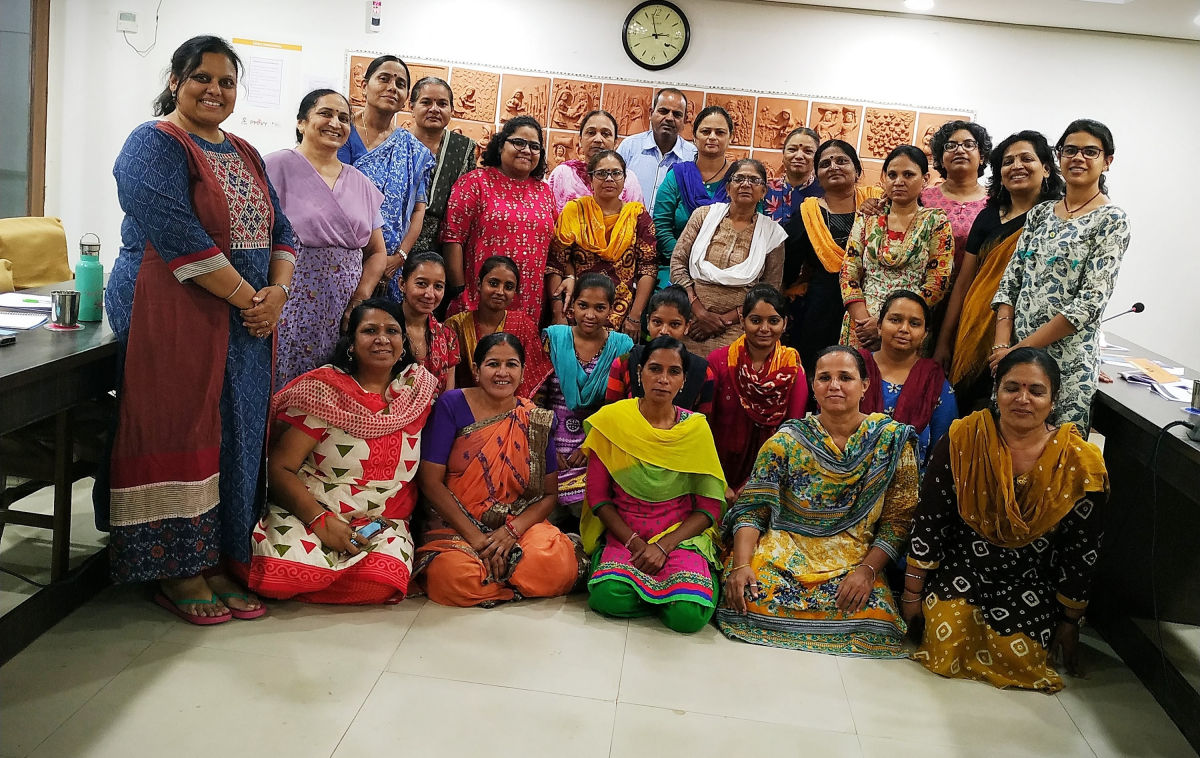
Equal Measures 2030’s National Influencing Partner in India is SAHAJ (Society for Health Alternatives). In May 2019, SAHAJ conducted a two-day training on the SDGs, in collaboration with the SEWA (Self-Employed Women’s Association) Academy in Ahmedabad. Almost two dozen participants, which included grassroots trainers, researchers and communicators, learnt about the overall SDG framework, the goals and targets, as well as relevant state and national level policies and programmes.
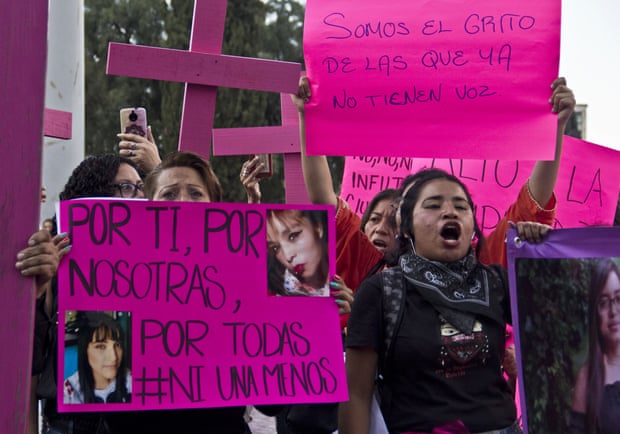
World leaders, civil society and the private sector are preparing to make 2020 the biggest year yet for the advancement of women’s rights.
Over the course of the year, thousands of people are expected to attend high-level UN events and forums in Mexico City and Paris to mark the 25th anniversary of the Beijing platform for action, a landmark agreement to end gender inequality.
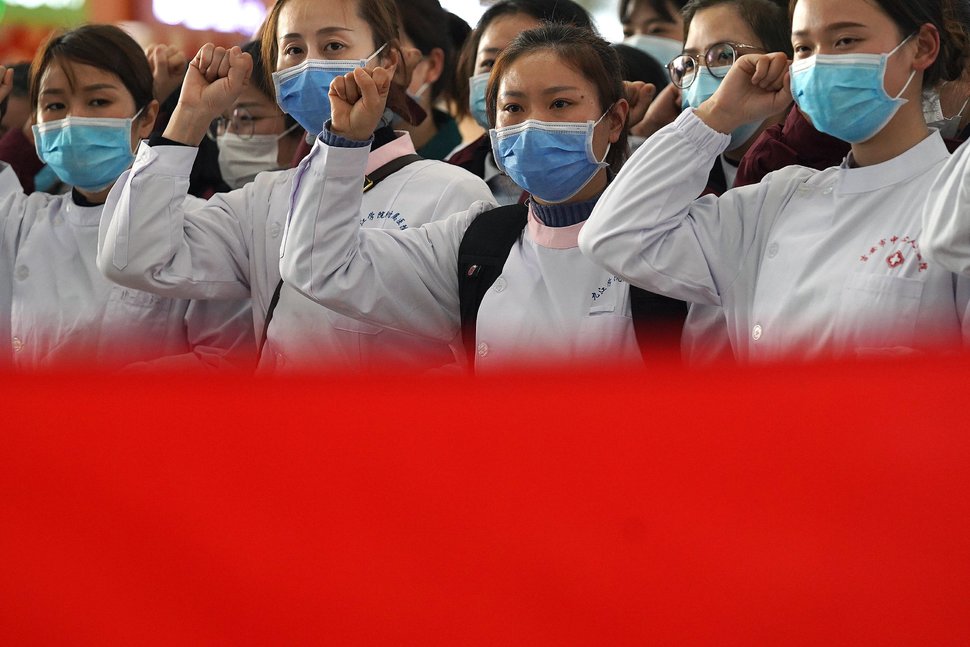
The world will never be the same after the COVID-19 crisis. Along with the devastating impact on individuals, families, communities and countries, the pandemic has also exposed gaping cracks in our social, political and economic systems.
The most pervasive of those cracks is discrimination against women, which persists in every country in the world. Not one single country has yet reached gender equality, and even worse, many countries are moving slowly or even backtracking on key gender issues. The social and economic aftershocks from the COVID-19 pandemic could set women back by decades.





